Post
Published on January 10, 2024
Last month, Dahdaleh research fellow Mark Terry attended the UN climate summit, also known at COP28. Mark shared updates about the Planetary Health Film Lab (PHFL) and participated meaningfully in discussions about neurodivergent representation.
On December 1, 2023, Mark Terry held a press conference for the United Nation’s Framework Convention on Climate Change’s Youth Climate Report, a partner program of the UN that curates and presents videos produced by the global community of youth for presentations at the COP conferences each year. This year, the PHFL, co-led by Terry, presented six films made by Indigenous youth in Belize. One of the films titled The Importance of Securing Land Tenure by Sebastian Cho, was screened to the international media.
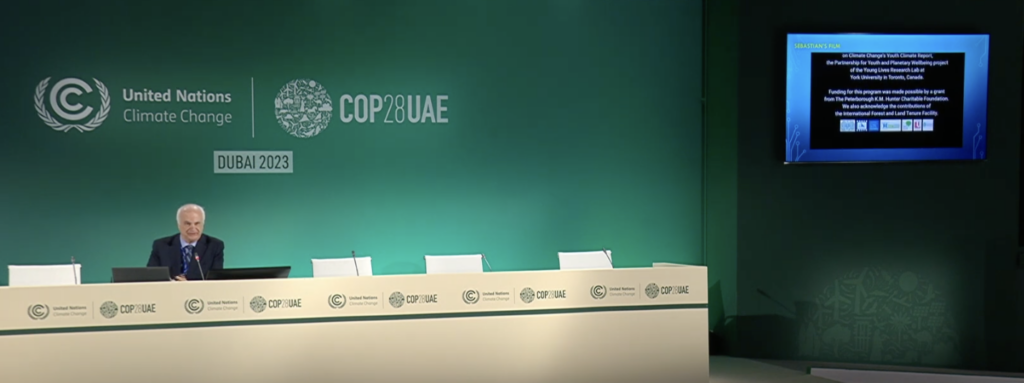
A first for PHFL videos this year was the daily screenings of each of the six films all day, every day prior to major events, plenary sessions and negotiating meetings in the Blue Zone. The films were showcased as “pre-session content” to highlight the UN’s International Decade for Indigenous Languages. The films from Belize this year included the native Maya languages of Mopan and Q'eqchi. COP28 had the largest attendance of all UN climate summits with 97,372 registered delegates in the Blue Zone. As a result, thousands of international delegates saw the PHFL films prior to their meetings during the two-week conference.
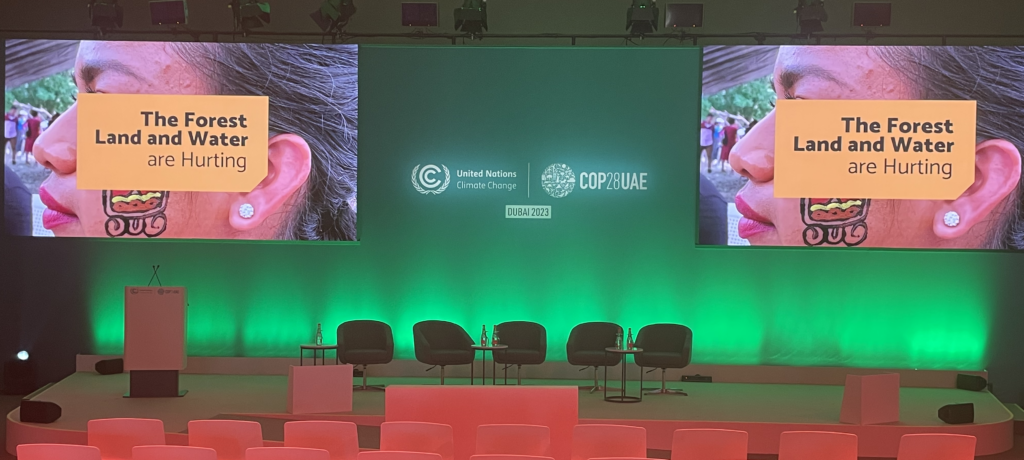
The entire press conference can be viewed below:
These films first premiered presented on December 7, 2023 at an event co-hosted by the Youth Climate Report and the Foundation for Environmental Education out of the University of Copenhagen. The event was called "Global Youth Voices for Climate Justice" and attracted over 150 delegates including Pablo Mis and Christina Coc from the Julian Cho Society in Belize, local partners in this year’s Planetary Health Film Lab. Dr. Terry introduced the films and answered questions with the Belizean delegates.
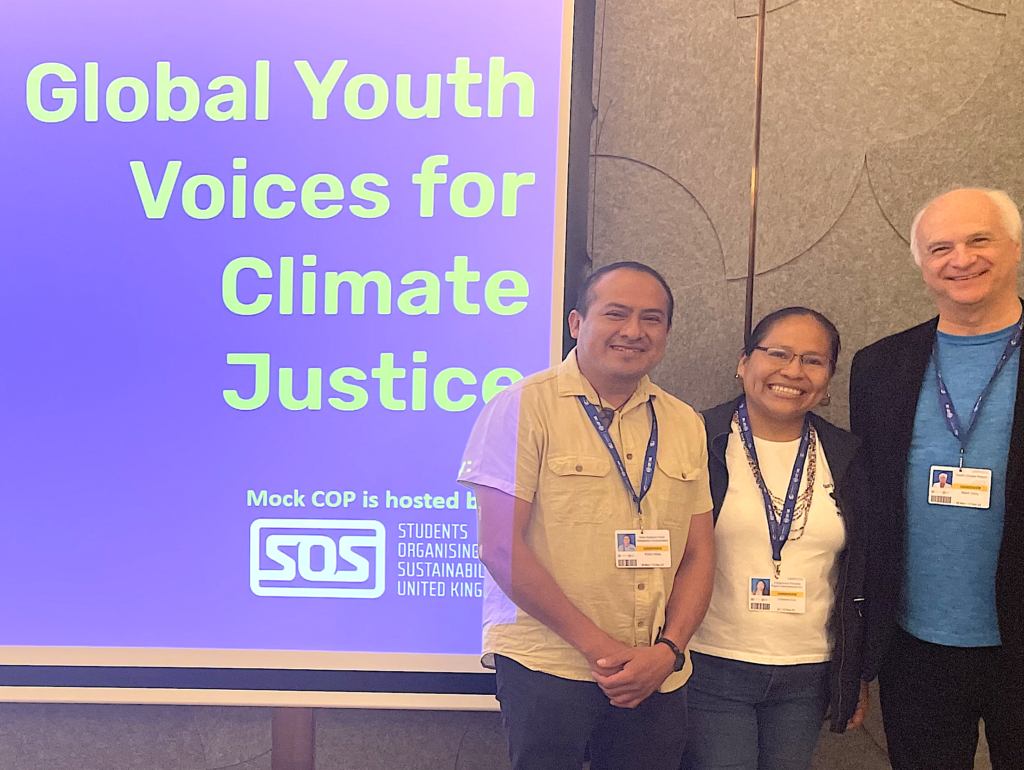
Mark with his colleagues at the film premiere 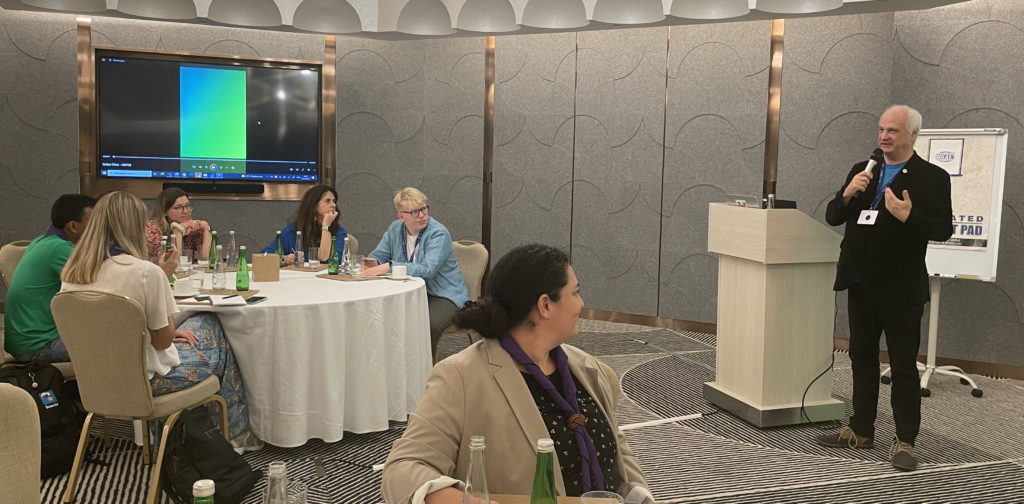
Presentation held in Belize 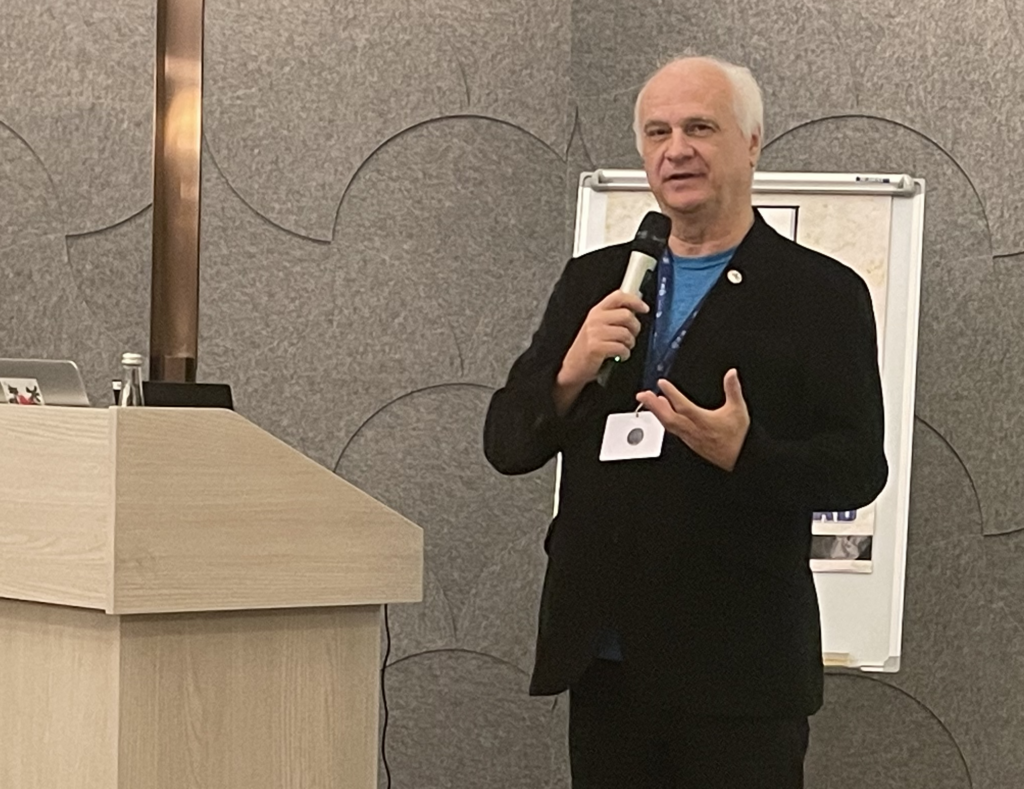
Mark presenting PHFL at the film premiere
Panel on Autism at COP28
On December 8, 2023, Mark Terry was also invited by the UNFCCC to participate in a panel examining the representation of the neurodivergent community in climate and sustainability policy creation at COP conferences. The December 8 event was titled Revolutionising Ocean Education: Initiating Ocean Literacy for Youth on the Spectrum of Autism and was hosted by EcoSpectrum and Dr. Terry's ongoing research project with the UN, the Youth Climate Report. The panel included two youth ambassadors on the spectrum as well as Dr. Terry and Dr. Mohammad Fteiha, Associate Professor of Special Education at Abu Dhabi University. Dr. Terry described how film projects like the PHFL can provide a voice for those on the spectrum and contribute to the representation of the neurodivergent community at policy conferences through the film reports they produce. Watch the entire 90-minute panel discussion.
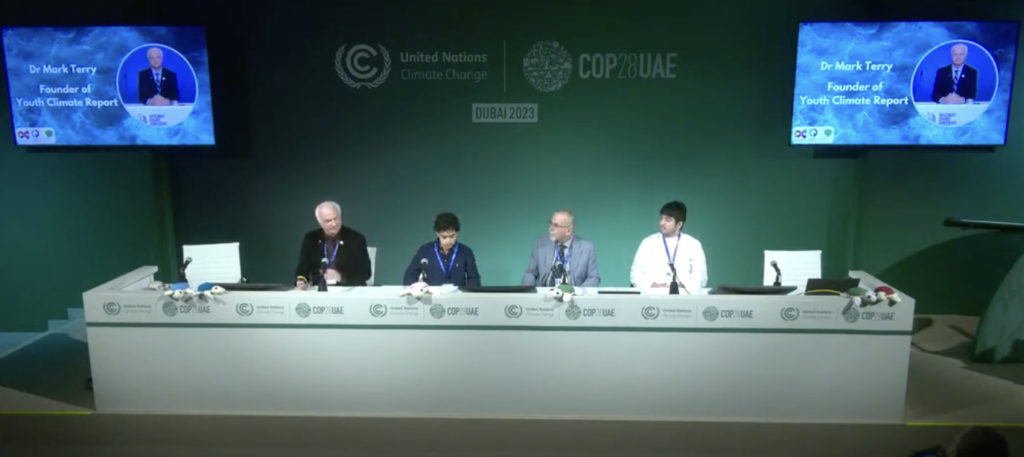
Autism Panel at COP 28 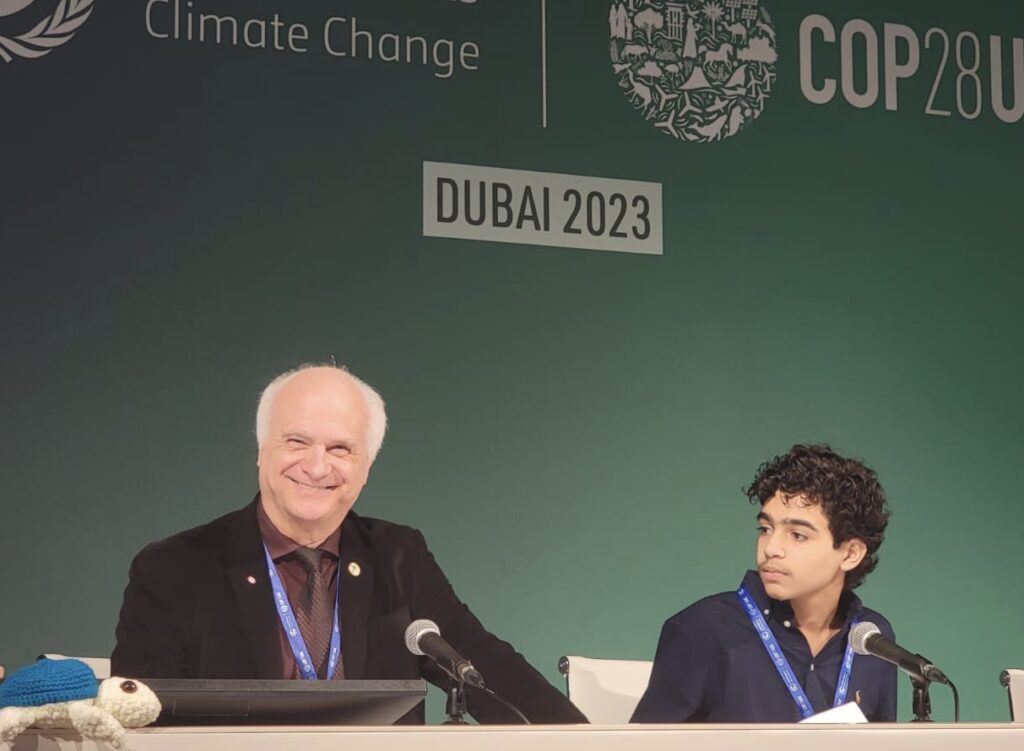
Mark Terry with Austism Ambassador Philo Gereis 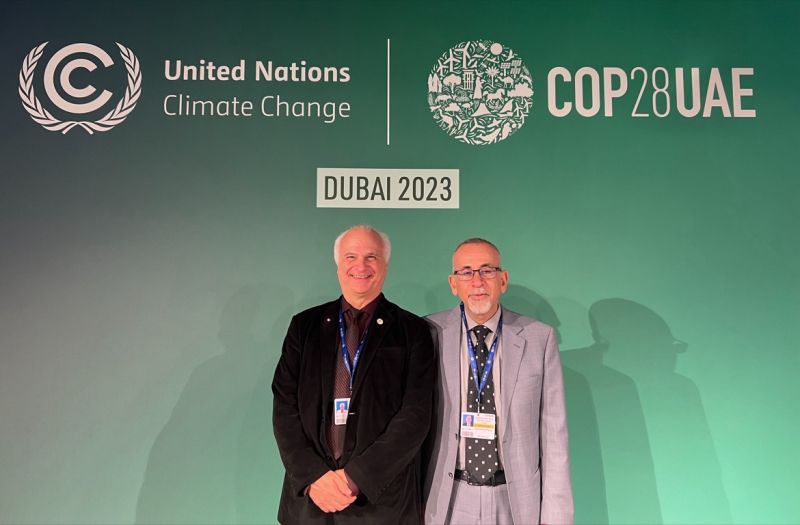
Professors Mark Terry and Mohammad Fteiha 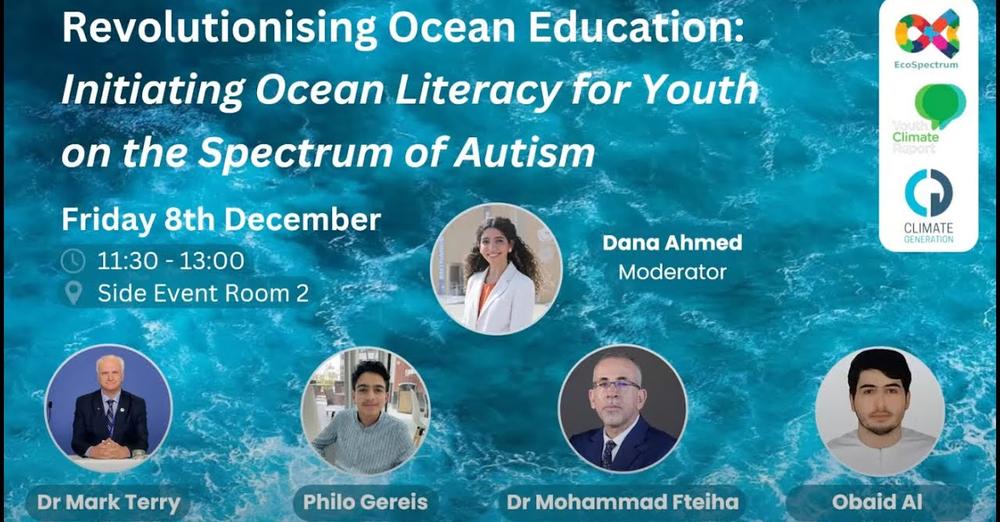
Revolutionising Ocean Education: Initiating Ocean Literacy for Youth on the Spectrum of Autism event poster
UN Television Interview
On December 4, 2023, the United Nations Art, Culture & Heritage Working Group conducted a roundtable discussion with Mark Terry, Sister Jayanti Kirpalani, head of the Brahma Kumaris, a registered NGO of the United Nations based in Geneva, and Carolin Fraude, a researcher at the Research Institute for Sustainability in the Helmholtz Centre Potsdam, Germany. The one-hour discussion recorded for UN television discussed how systemic changes are required in the way the climate crisis is perceived by the general public, by business and by governments including the UN policy processes. The Planetary Health Film Lab was examined as an example of how perceptions of environmental issues can be changed when presented in a visual context and through the voice of Indigenous youth. The academic roundtable will be broadcast online in January, 2024.
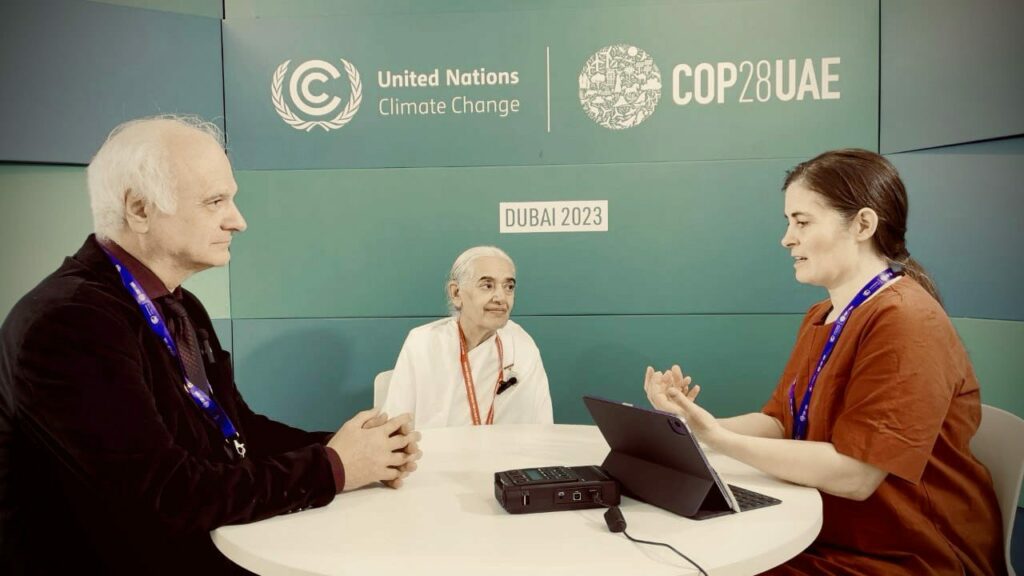
Micro Film Festival in Punta Gorda, Belize
Dr. Terry returned to Belize to attend the Micro Film Festival and certificate presentation ceremony held in Punta Gorda. With local partners, the Planetary Health Film Lab organized a showcase of the films made that year in the Indigenous communities of the participants. This year, they worked with the Julian Cho Society based in Punta Gorda, Belize, to showcase the films and their filmmakers in the community they were made. Attending the event with the filmmakers were PHFL co-lead and Dahdaleh executive fellow Kate Tilleczek, Dahdaleh research fellow Jim Stinson, and Dahdaleh PhD research associate Lee McLoughlin, and Mark Terry. Each film was introduced by its filmmaker or their representative and a PHFL certificate of program completion was presented. A total of more than 200 friends and family of the filmmakers attended along with other community members.
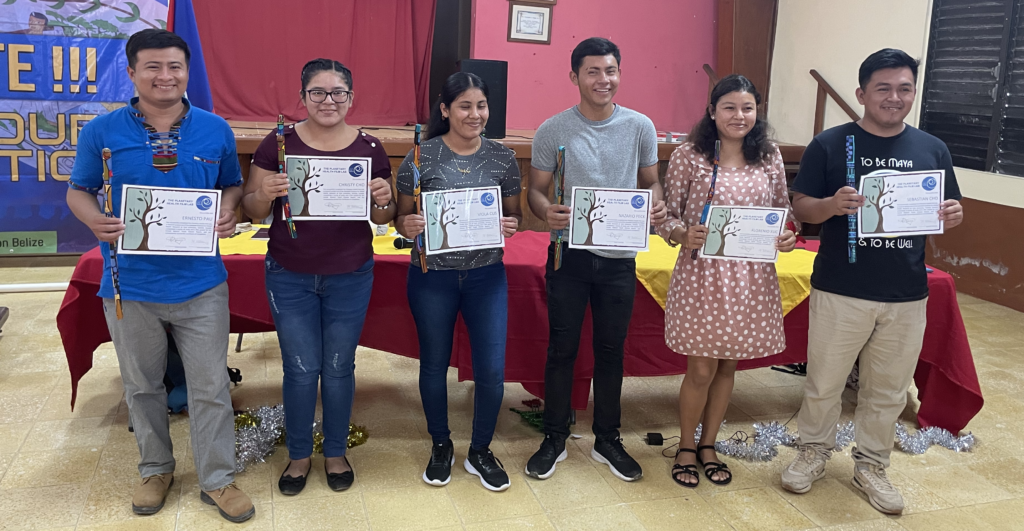
The graduating class of the 2023 Planetary Health Film Lab, Punta Gorda, Belize. 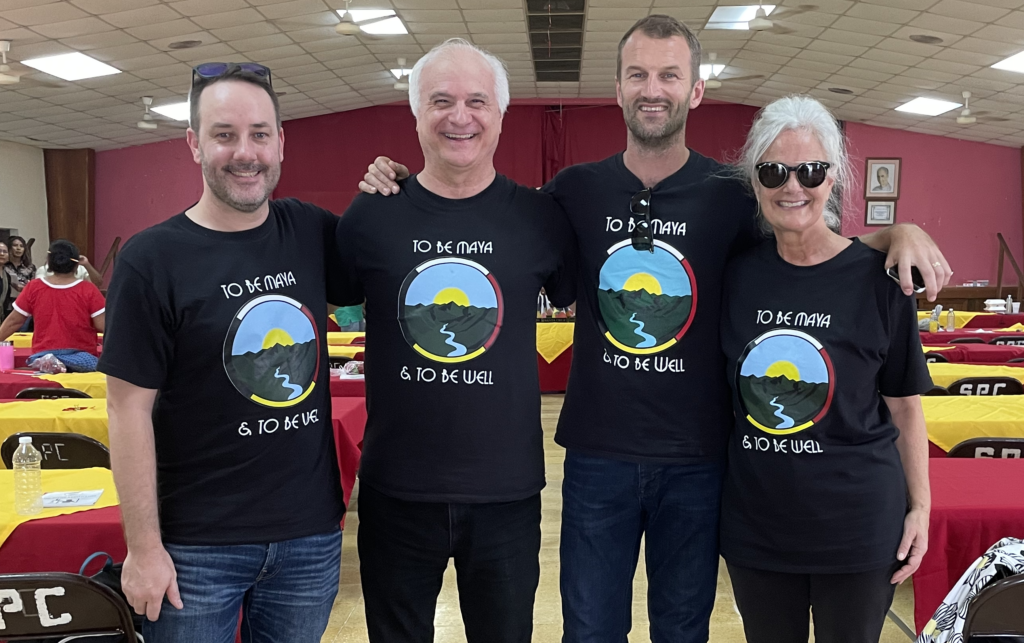
The Dahdaleh Institute Team for this year’s Planetary Health Film Lab project in Belize. From left, researcher Jim Stinson, PHFL co-lead Mark Terry, research assistant Lee McLoughlin, and PHFL co-lead Kate Tilleczek. All project team members are wearing program T-shirts made by the local Julian Cho Society for all participants.
Themes | Planetary Health |
Status | Active |
Related Work | |
Updates |
N/A
|
People |
Kate Tilleczek, Faculty Fellow, Faculty of Education - Active
Mark Terry, Research Fellow, Documentary Film & Global Health - Alum James Stinson, Postdoctoral Fellow, Planetary Health & Education - Active Lee Mcloughlin, Research Assistant, SMART Conservation - Alum |
You may also be interested in...
Recap - Anticipating Responses to Rapid Climate Velocities in Canadian Fishing Communities
On January 10, 2024, Sherif Shuaib, a graduate scholar at the Dahdaleh Institute, presented his research on predicting adaptations to rapid climate velocities in Canadian fishing communities. Shuaib delved into the intricate relationship between fishing ...Read more about this Post
Exciting New Events Scheduled for the Winter 2024!
The Dahdaleh Institute for Global Health Research has prepared an invigorating line-up of seminars for the start of the 2024 Winter semester. The events will feature a variety of topics covering the effects of climate ...Read more about this Post
Dahdaleh Institute Researchers Awarded Over $1.4M from New Frontiers in Research Fund
Originally published by Yfile (4 May 2023). Written by Corey Allen, senior manager, research communications Seven projects led by York University researchers were awarded a combined $2.4 million from the New Frontiers in Research Fund (NFRF) in ...Read more about this Post
